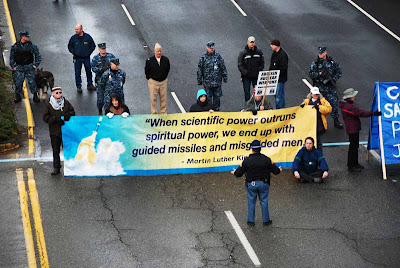One very famous quote - full of practical wisdom - that came from
the movie All The President's Men
The phrase covers so many situations. ICAC are busy following the money with Eddie Obeid and 'friends'. The practice of 'following the money' unmasks criminals. Following the money is very important in business - especially Australia's big business of mining. University of Melbourne researcher Sara Bice, in relation to overseas activities of miners, asks
"Just how transparent are our big miners when it comes to payments to foreign governments - and how much do local communities see?"
Aboriginal communities in Australia regularly ask that question. However, mining companies in Australia long ago (ahead of the mainstream community including our governments, I would suggest) learned that if they sat down and talked to Aboriginal communities it might take a bit longer, it might require a bit of 'splash the cash', but - by and large - they would get to do what they wanted to do.
Many Aboriginal communities have benefitted from this approach. Many Aboriginal businesses and some significant Aboriginal employment opportunities have emerged. Yep - there are still disagreements, locally and nationally. Some of these involve who speaks for whom; who are Traditional Owners. All of this makes Aboriginal people no different from any others who are involved or want to be involved in high stakes business deals.
Now a new issue is emerging. Ciaran O'Faircheallaigh of Griffith University discusses here the equitable distribution of mining wealth to Aboriginal communities. Mainstream communities believe their best interests are often by-passed as mining companies opt not for building communities as they did in past decades but for FIFO. Aboriginal communities who are unable to negotiate with a mining company feel that they are missing out on an economic opportunity. Concerning those Aboriginal communities who do negotiate with mining companies, are they able to negotiate on an equitable basis?
Tracker, the journal of Aboriginal news, reports to-day that a Treasury working group will look at the tax treatment of native title payments after concerns were raised the windfalls could be spent without thinking about how best to benefit future generations.
This sounds all very worthy. However, caution needs to be exercised ... given the Commonwealth bullying in the NT of income management through the basics card; given the capacity of governments to give with one hand and take with another; given the inequitable power mechanisms that can be launched by big business and government against Aboriginal people and organisations.
It would be sensible and good news if there was some way of ensuring that inter-generational benefits were a feature of mining-communal negotiations. However, will this be an excuse to empower a few favoured blackfellas? An excuse to see a decline in government responsibilities to Aboriginal citizens and their communities?
Already we have seen that some Aboriginal people who have been educated to the highest whitefella levels are favoured by governments ... because the frequently ignorant whitefellas have never lived among Aboriginal citizenry and find that these big fellows speak the dominant whitefella's language.
Already we have seen how capital city citizens and governments do well and remote Australian citizens, whether white or black, do poorly. My view is that white citizens in remote Australia do badly but Aboriginal Australians do the worst.
All this talk about Aboriginals getting off welfare and building businesses and economies! Please show me a first class economy anywhere involving local citizens which can function well without a bitumen road. A dirt road in the Northern Territory in The Wet doesn't do much for people trying to establish some economic self-sufficiency. Often, communities are not far from a bitumen road that whizzes whitefellas to their destination - but the nearby Aboriginal community can only manage the occasional grade of a dirt road. In fact, I think that if I was trying to sabotage an Aboriginal attempt at self-sufficiency - and keep Aboriginal people out of sight and out of mind, I would never give them a bitumen road or access to transportation!
Remote Australia is out of sight and out of mind from those who cling to the coastline and provide governments with the majority of their votes. Remote Australian citizens, white and black, need a Charter of Rights. It would be possible to do this and have people defined by their remoteness. The tool for this already exists. I wish that Remote Australians - black and white - would rise up against their governments.
After all, Remote Australians have nothing to lose but their neglect!
 |

















